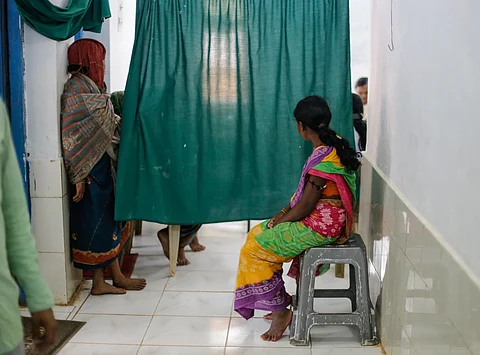

As India anticipates the release of Union Budget 2024-25, the nation finds itself at a pivotal juncture, carrying immense potential and responsibility. It is important for a number of reasons. It needs to tackle urgent problems like healthcare, education and unemployment, while making sure that funds are allotted to improve underprivileged areas and uplift marginalised communities.
At the same time, the Budget must include initiatives to increase investment, infrastructure and innovation, which is essential for promoting growth in the face of global uncertainty. Also, this budget will put the government to the test in terms of its capacity to strike a balance between fiscal restraint and populist expectations, swaying public opinion and reshaping the political landscape. India’s trajectory in the upcoming years will be greatly impacted by the budget’s ability to manage these complex issues.
The stakes are high for this budget to tackle the urgent needs of the social development sector, with a particular focus on public health.
The allocation for health in the recently presented Interim Budget for 2024-2025 was especially crucial as India approached the 2025 deadline set by National Health Policy (NHP) 2017 to increase health expenditure to 2.5 per cent of GDP.
During her budget speech in February, Finance Minister Nirmala Sitharaman outlined significant plans for India’s healthcare sector. For 2024-25, the sector was allocated Rs 90,171 crore from the budget, marking a substantial increase from the Rs 79,221 crore allotted in 2023-24.
The Interim Budget 2024-25 also introduced several key healthcare measures. A new initiative aimed at promoting cervical cancer vaccination for girls aged 9-14 was launched, targeting the reduction of this preventable disease. The allocation for the Ayushman Bharat Pradhan Mantri Jan Arogya Yojana increased from Rs 7,200 crore to Rs 7,500 crore.
The Unorganised Worker Identification Number (U-WIN) platform was introduced to enhance immunisation management and support ‘Mission Indradhanush’. Additionally, funding for biotechnology research and development was raised to Rs 1,100 crore from Rs 500 crore, highlighting the government’s commitment to innovation and improved healthcare infrastructure.
Though spending on healthcare from the share of gross domestic product (GDP) has increased year to year from 2014-2022, the increase is not uniform. Moreover, in comparison to other nations’ expenditure (7.6 per cent on average for countries under Organization for Economic Co-operation and Development and 3.6 per cent on average for BRICS countries), India’s expenditure on public health system is approximately 1.3 per cent.
The Budget allocation needs to be increased to 2.5 per cent of the GDP to augment social insurance schemes, boost healthcare reforms and infrastructure and fast-track digital health services across India.
The COVID-19 pandemic exposed severe gaps in India’s healthcare infrastructure. Thus, citizens are hoping for a substantial increase in budget allocations to enhance hospital facilities, rural healthcare services and medical research. Expansion of schemes like Ayushman Bharat to ensure wider coverage and better access to affordable healthcare is essential.
Corporate Social Responsibility (CSR) plays a pivotal role in the healthcare sector, significantly contributing to sustainable development and addressing pressing health challenges. In the healthcare sector, CSR supports local healthcare providers, stimulates economic growth and creates job opportunities.
This budget should motivate CSRs to invest in public health, focusing on access, diagnostics and overall healthcare. Corporates should be incentivised to channel their investments into the healthcare sector.
Budget 2024 presents a critical opportunity to address the pressing needs of the social sector in India. By prioritising healthcare, education and social welfare, the government can ensure a better quality of life for all citizens.
Political will is the key to public health policy-making and a major driving force for the attainment of Universal Health Coverage in India. By providing tax incentives to CSRs, highlighting priority areas and promoting public-private partnerships, the government can foster a collaborative approach to national development.
Paresh Kumar is a researcher, author and social entrepreneur. He co-founded and is the chief executive DevInsights, a social research-based consulting firm.
Views expressed are the author’s own and don’t necessarily reflect those of Down To Earth.